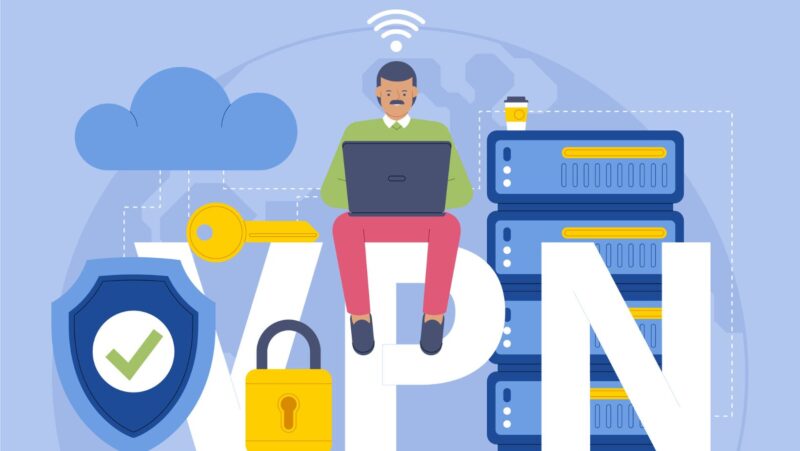Have you ever wondered how to remain anonymous online or get around the restrictions of some websites?
Proxy servers are probably what you’re looking for. These powerful tools act as an intermediary between you and the internet, masking your identity and securing activity online.
But did you know there are different types of proxy servers, each offering unique features and benefits?
Be it for privacy, speed, or accessing geo-blocked material, knowing the types of proxies helps one make a more informed decision. The use cases are infinite, from rotating residential to data center proxies.
Want to know more?
Continue reading and find out which type of proxy server is going to be most suitable for you, along with how it will enhance your internet experience.
1. Rotating Residential Proxies
When you use rotating residential proxies, you tap into a vast network of real residential IP addresses provided by Internet Service Providers (ISPs). The main advantage is the automatic rotation of IP addresses after each request, making detecting or blocking your activity challenging for websites.
Every new request seems to come from a different user with a unique IP, so you can easily bypass rate limits, CAPTCHAs, and IP-based restrictions. Rotating residential proxies works best when you need to scrape content from many websites simultaneously.
For instance, using NetNut Residential Proxy gives you a vast pool of rotating IPs to use for data extraction without getting noticed. This service lets you access local content and open websites in restricted regions to obtain data from multiple geographic areas.
You can set up automated proxy switches through NetNut while gaining complete data extraction control from the system to run large projects without interruptions. Additionally, the diverse IP pool ensures that your scraping activities appear natural, reducing the risk of encountering blocks.
You can scale your data extraction efforts quickly as the proxy service supports high concurrency, allowing you to swiftly request large amounts of data. With constant IP rotation, you can maintain access to websites even if they have stringent anti-scraping measures in place.
2. Datacenter Proxies
If speed and cost-effectiveness are your priorities, data center proxies are perfect. Sourced from data centers, these proxies guarantee fast, stable, and reliable connections and are ideal for a variety of tasks.
No matter what you want to do, online data center proxies deliver the best performance for your tasks. They provide excellent results when you need fast network connections alongside large-scale data processing.
You can expand your operations freely because they have reasonable costs compared to other options. When performing numerous automatic operations, their quick and consistent network link makes them perfect for public data scraping and bot control.
You receive all benefits from this service fast and at an economical cost, whether you want fast navigation or quick data extraction. Moreover, data center proxies offer fast performance at budget costs, making them suitable for multiple tasks.
3. Mobile IPs
Mobile IPs can bypass restrictions based on mobile-specific traffic or access content designed exclusively for mobile devices. Originating from mobile networks like 4G or 5G, such proxies are much harder to identify as proxies.
With mobile IPs, you get rotation frequently since you are switching between towers or connections, giving you an upper hand in anonymity. This makes them great for mobile app testing, market research, or bypassing geographic restrictions based on mobile networks.
Since mobile IPs are issued by legitimate mobile carriers, websites, and services are less likely to block or flag them. Suppose you are working with mobile application-related projects or must emulate user behavior on mobile networks.
In that case, mobile IPs are a good choice for maintaining your privacy while accessing mobile-targeted content. They also provide greater security by emulating real user connections. Mobile IPs are your best option for tasks requiring realistic mobile traffic patterns.
4. Static Residential Proxies
Static residential proxies are the perfect balance of anonymity and stability, making them an excellent choice for long-term projects that require consistent connections. These proxies utilize real residential IP addresses, ensuring a high level of privacy while offering the advantage of a fixed IP.
Unlike rotating proxies, which change IP addresses frequently, static residential proxies maintain the same IP for a long time.
These are particularly suited to any job requiring the maintenance of persistence between sessions-for example, in juggling several accounts on different social media, retrieving region-specific information, or operating with plausible deniability.
Static residential proxies deliver stable performance for extended periods, reducing the risk of service interruptions. Since ISPs provide these resources, they have better protection, making them ideal for situations that need to be discreet and hidden.
When managing digital operations or obtaining data, you can use static residential proxies to maintain continuous work performance. Users seeking a steady IP address during extended periods will find static residential proxies that stand out and have superior security.
So, if you want dependable and safe internet access, residential proxies deliver that protection.
Conclusion
Using a proxy server would mean the world of difference when trying to surf anonymously, wanting more speed to open content, or seeking access to geo-blocked websites.
From these, several specialized options become available, such as a mobile IP for long-term collection or mobile application testing with a static residential proxy.
Understanding the unique features of each type allows you to make informed decisions, ensuring your online activities remain secure, efficient, and unrestricted.

